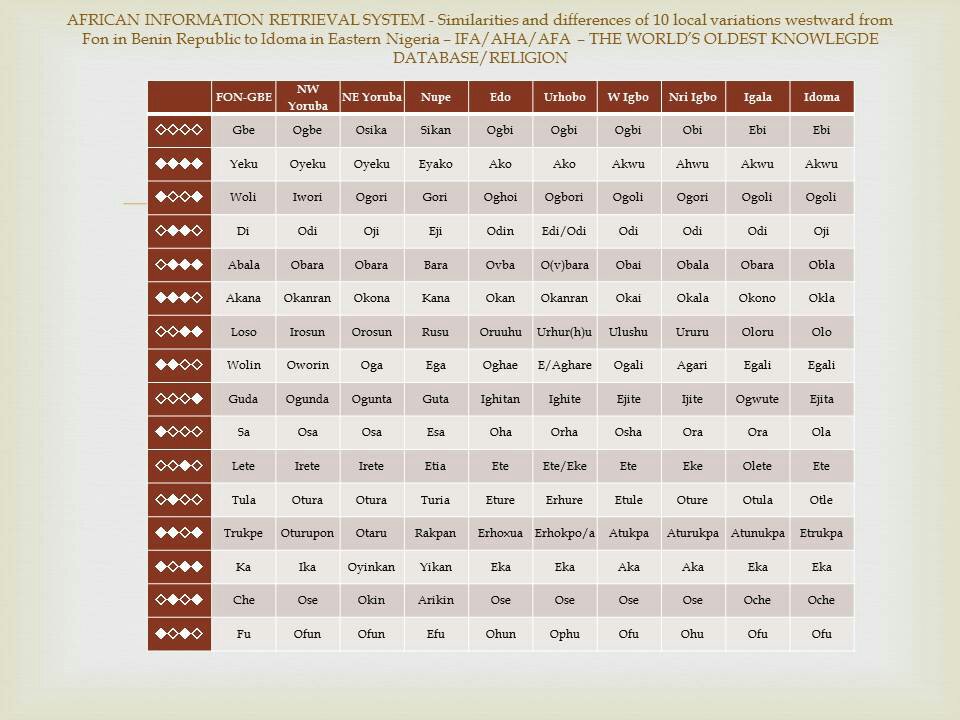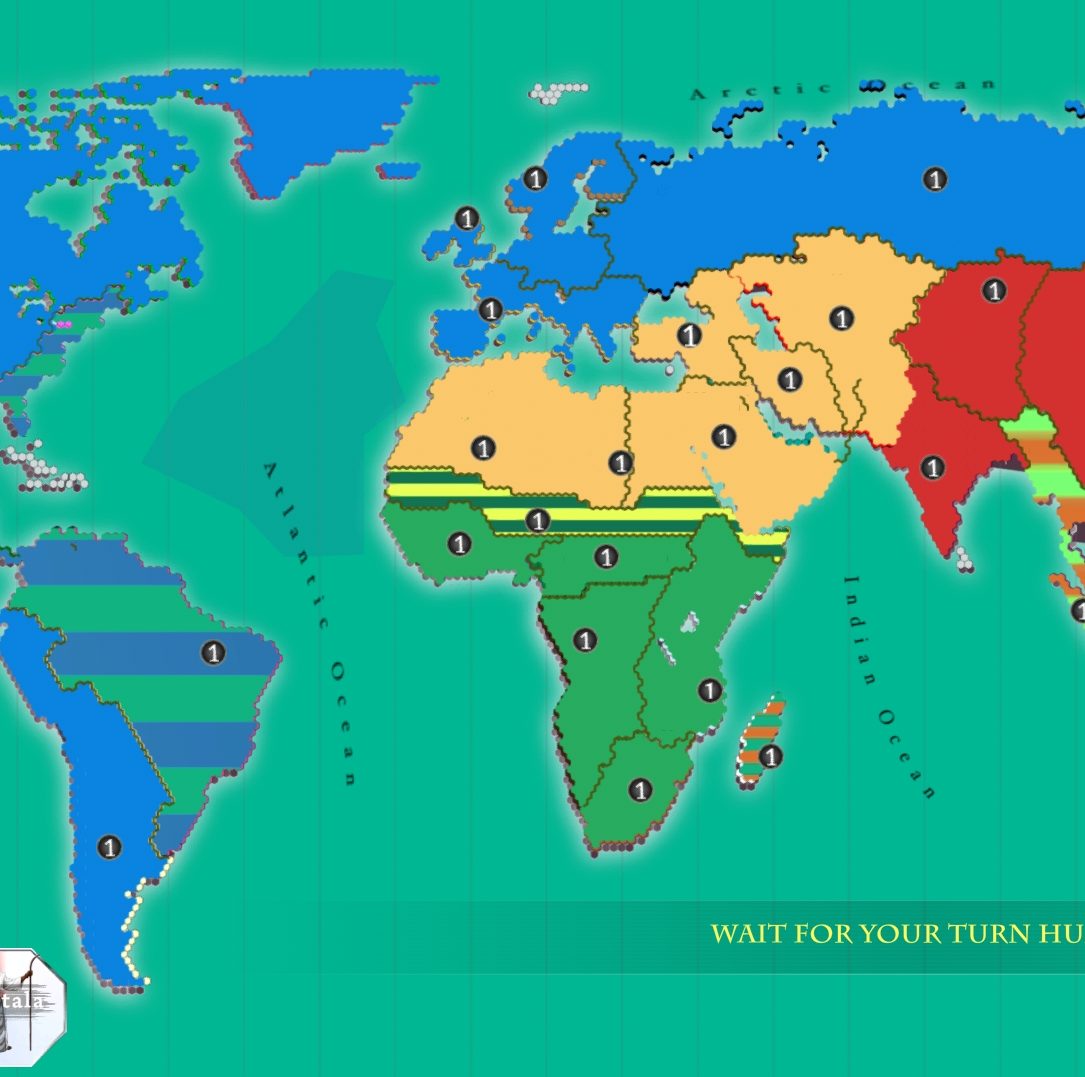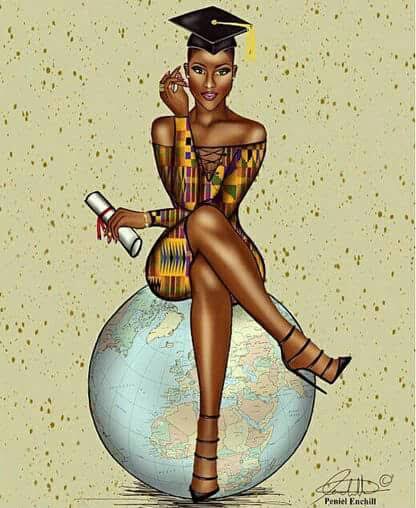
The woman is the first and most important teacher of any civilization, and when she becomes disoriented, the whole society goes down. With recent DNA evidence proving that the true Eve and Garden of Eden was in Southern Nigeria, we know the likes of Osun, Oya, Ala, Yemoja were instrumental in the evolution of human civilization.
We also know the likes of Harriet Tubman during slavery, Funlayo Ransome Kuti during colonization had significant impacts on their movements. It is said teach a man, you teach an individual, teach a woman, you teach a family.

Funlayo Ransome Kuti

Harriet Tubman
A mother’s perspective is every humans first world perspective, starting from the point that children speak their mother tongue, language. What is beautiful, what is good, what is desirable, fearful or inspiring are first learnt from the mother. Most of these perceptions and social constructs are culturally and environmentally induced.
However, in a global world, it is from the mother that comparisons are derived. Therefore it is unfortunate that the post-modern Black women insidiously imbues a sense of racial inferiority complex in their children with their choices of other races hair implants, color preference etc.
The gender relationships in Africa was different from most of the world simply because the lushful forests afforded her the opportunity to be productive. Even if she couldn’t gather enough energy for large scale farming, from Africa to the Caribbean African women had the opportunity to grow vegetables and medicinal herbs. She was made the Goddess of fertility and prosperity because she could be effective in the her environment, unlike her counterparts in arid and freezing wildernesses where survival depended on herding and war plundering. The Asiaitc women sometimes had only her body to sell, so the stereotypes of witches and easy virtue women were developed.

Ala, Igbo Alusi/Agbara of Creation

Anyanwu, Igbo Alusi of the Sun and reasoning
It is argued that matriarchy spread out of Africa at the beginning of human civilization, but the harsh wilderness that made them redundant, led to patriarchy. The Moon God to the Sun God. Some say the apple story in the Bible was the change from matriarchy to patriarchy since the snake was the symbol of the woman, and the woman in practice is the true tree of life. But that is another story.
The Original African woman cut a strong figure in African cosmology and real life. In Yoruba and Igbo, some of the two most important Orishas/Agbaras were Osun and Ala. In addition, Yemanja, the keeper of time, Oya the revolutionary, and others showed a gender balanced society.


Yemanja, Yoruba Orisha of rising tides, moon and time
In traditional politics, the Iyalode, the leader of women, and Bashorun, the leader of Men and the Congress (Oyo-Mesi), were the two required to impeach a king. While Men fought wars, women armed them as we saw with Efunsetan Aniwura and Madam Tinubu.
The original African woman power came from her complete domination of the economic realm. She travelled 3000 miles to trade her wares produced by her men folk in the farms and mines. Western colonization that was essentially economic affected the Original African woman the most, which was why we heard of Aba and other market women riots. Apart from the head and produce taxes to kill her market, the patriarchal colonists cut out her middleman role and took the produce directly from the men, especially having forced a change from food and local production to exported cash crops.

Despite the economic barriers against the Original African economic base, it took cultural disorientation to completely neutralize the African woman. With the destruction of her economic base, she was induced to seek social assistance through the churches where she lost her true cultural identity. African women and children became the greatest customers of Abrahamic religious dogma that denigrated their Original African cultural origins and linkages. Man was no longer a complimentary partner but became a greater God that she had to worship to survive.
With the loss of her economic base and its structures, as well as change from polygamy to monogamy, she lost her ability to organize other women and her grip on political power. Instead of her Oya role as the societies revolutionary change agent, her get up and do attitude was tempered and she in turn passed the defeatist attitudes to her children.
Not only did she not fight to retrieve her economic base, she taught her wards to be submissive and work for their oppressors. Her acceptance that she belonged to children of a lesser God and acceptance of foreign values of beauty and morality, meant she could no longer control her economic sphere. If her people worn foreign hair, ate foreign food, wore foreign clothes of which she didn’t produce, how could she control their sales.
Basically, she allowed herself to be brought down to the desperation of the Asiatics that made them sexual objects. This was a departure from the Age of the matriachs when her ancestors devised measures to restrain sexual emotions through female circumcision.
To them sex was for procreation and not recreation, while marriage was not a wholly sexual affair but an economic and social institution to control human and natural resources. After being arranged a first wife by his parents, it was the first wife that choose subsequent wives by selecting ones that can increase the economic and social viability of her family unit. The Man was viewed as the weaker sex guided by emotions and sexual desires, while the women folk focused on the tangible longer term. As long there was land, she produced male children to work on the farms and female ones to market the wares. A complete economic circle. But with the loss of her economic powress, it was her sexual powress that became the money maker which didn’t permit for more wives.
This loss of her economic sphere and the organization and control of her gender, she became dependent on the benevolence of the male in the imposed neocolonial systems, where she struggled to get less than 25 percent political reprrsentation. Men now choose the market leaders and the Original African woman paled into political significance.

The Black African race can’t compete globally and assume racial parity when half of its population had been made redundant and dependent. The Original African woman must find her feet by fighting to regain the control of the economic realm.
Culture, the way we do things, is economics, the means to achieve things, and politics, how we organize to do things. So the Black woman has to get back her assertive Original African culture, in order to influence the type of goods produced and control their production. They must find ways to rediscover how to organize their gender in the economic and domestic spheres. Then she must refrain from teaching her wards defeatist foreign dogma. Only then can the Black Race rise.

The Black Race can only rise if it relearns and appreciate its own natural culture, starting with its female figures. It is the Yoruba woman that can strike better alliance with her Igbo and Middlebelt counterparts to regain economic and political relevance. It is said that in the beginning of Yoruba cosmology when the 16 spiritual humans started they could not succeed or grow until advised by God that they should include Osun in everything they do.
Instead of galivanting from church to church, she must understand her own culture first discovered by Osun/Ala, and with its knowledge she would understand her true natural alliances in other Original African groups, the Niger-Congo ethnolinguistic family.
Even without DNA and linguistics evidence that shows that Yoruba, Igbo and all other Southern and Middlebelt groups are mere dialects of each other, if she knew her culture sh would realize that the 16 sector Original African Information Retrieval system aka Ifa-Afa-Iha-Eha-Fa is shared by all the groups. This would enable her teach her children and clan who were their natural alliances and extended family. Together they would unite to repel Asiatic and European imperialists and ensure a new era of global Black economic ascendancy.

Yoruba, Igbo, Edo, Urhobo, Igala Foundation of knowledge, the world’s first religion and knowledge bank
In Yoruba cosmology, Shango the Orisha of Justice, the men made noises about injustices while it was Oya, the Orisha of Revolutionary Change, a woman that effected a change. So, instead of staying on her knees praying for deliverance by Men according to Abrahamic dogma, she should stand strong and change the system that has devalued and denigrated her sphere.








